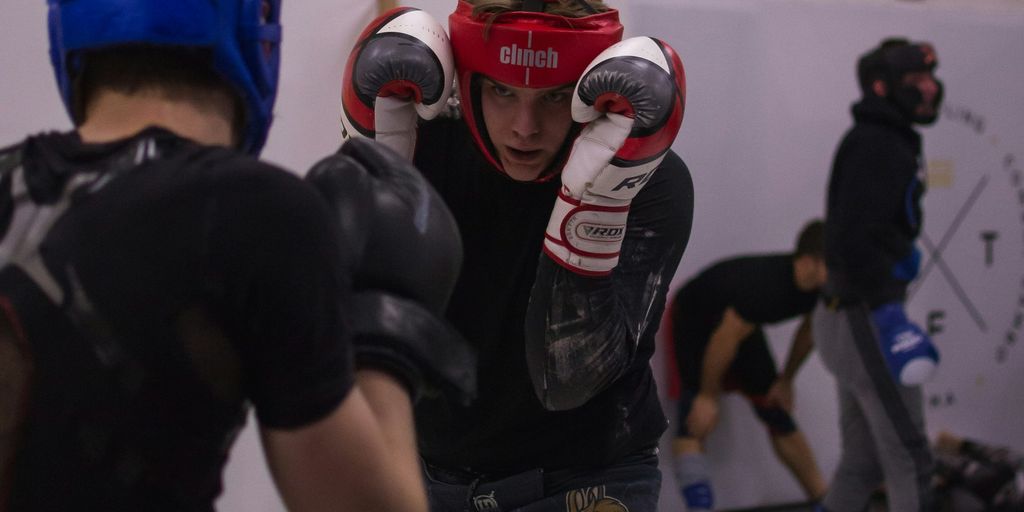So, you wanna know how to get into the UFC? It’s a big dream, right? Becoming a UFC fighter isn’t just about throwing punches; it’s a whole journey. We’re talking years of hard work, sweat, and probably a few bumps and bruises along the way. But if you’re serious, if you’ve got that fire, then this guide is for you. We’ll break down what it really takes to step into that octagon.
Key Takeaways
- You need to master all kinds of fighting styles, not just one.
- Finding the right gym and coaches is super important for your training.
- Winning fights consistently is how you get noticed.
- Networking and having a good online presence can really help your career.
- Patience is key; getting into the UFC takes a lot of time and effort.
Mastering the Fundamentals of MMA
So, you wanna be a UFC fighter? It’s not just about raw power. It’s about building a solid base. We’re talking serious dedication to the basics. You gotta eat, sleep, and breathe MMA. It’s a lifestyle, not a hobby. Let’s break down what that means.
Developing Undefeated Fighting Techniques
Forget flashy moves for a minute. Focus on the stuff that wins fights. Jabs, takedowns, submissions. Drill them until they’re second nature. Repetition is key. You want those techniques ingrained in your muscle memory. Think of it like building a house. You can’t put up the roof without a strong foundation. And in fighting, that foundation is rock-solid technique. Don’t skip steps.
Incorporating Diverse Martial Arts Disciplines
MMA is mixed for a reason. You can’t just be a one-trick pony. You need to be well-rounded. That means learning different styles. Boxing for striking, wrestling for takedowns, jiu-jitsu for submissions. The more tools you have, the better prepared you’ll be. Think of it as building your own custom fighting style. Borrow the best from each discipline and make it your own. It’s about finding what works for you and blending it all together. You can also improve your striking by competing in amateur boxing and kickboxing competitions.
Optimizing Strength and Explosiveness
Technique is important, but so is power. You need to be strong and explosive. That means hitting the weights. Focus on compound exercises like squats, deadlifts, and bench press. These build overall strength. But don’t forget about explosiveness. Plyometrics like jump squats and box jumps are great for developing power. And don’t neglect your conditioning. You need to be able to go the distance. Cardio is your friend. You need to be in the gym nearly every day in class working on developing your skill and learning the basics. If you want to bet on fights, you need to understand moneyline bets.
It’s not just about lifting heavy things. It’s about moving your body efficiently. It’s about generating power from the ground up. It’s about being able to explode at any moment. It’s about having the gas tank to keep going when your opponent is fading. It’s about pushing yourself to the limit, day in and day out. It’s about dedication.
Strategic Training and Development
So, you wanna be a UFC fighter? It’s not just about raw talent. Smart training is where it’s at. You need a plan, a team, and the discipline to stick with it. Let’s break down how to get your training on point.
Finding a Reputable MMA Gym
First things first: ditch the garage workouts. You need a real gym. Look for a place with experienced coaches, a solid track record, and a good atmosphere. It’s not just about the equipment; it’s about the people who can push you and guide you. A good gym will have fighters at different levels, so you can learn from everyone. Don’t be afraid to try out a few gyms before you commit. See where you feel most comfortable and where you think you’ll get the best training. Finding the right gym is like finding the right mentor; it can make or break your career. Consider these points when choosing a gym:
- Coach experience and credentials
- Training partners and their skill levels
- Gym culture and atmosphere
- Equipment and facilities
Drilling and Sparring for Skill Refinement
Drilling is the boring part, but it’s essential. Repetition, repetition, repetition. You need to drill those techniques until they become second nature. Sparring is where you put those techniques to the test. It’s not about winning or losing; it’s about learning and improving. Find training tops that allow you to move freely. Sparring should be controlled and focused on specific goals. Work with different partners to get different looks and styles. Don’t be afraid to get hit; it’s part of the process. Just make sure you’re protecting yourself and learning from every exchange.
Cultivating a Distinctive Fighting Style
What makes you different? What’s your edge? Are you a knockout artist? A submission specialist? A relentless wrestler? You need to find your style and develop it. Don’t try to be someone you’re not. Embrace your strengths and work on your weaknesses. Watch fights, study fighters, and see what works for you. But don’t just copy someone else’s style; make it your own. Your style should be a reflection of your personality and your physical attributes. It’s what will make you stand out from the crowd. Developing a unique fighting style is key to success in the UFC.
Strategic training isn’t just about physical preparation; it’s about mental fortitude and tactical awareness. It’s about understanding your opponent, exploiting their weaknesses, and imposing your will. It’s a constant process of learning, adapting, and evolving. It’s what separates the good fighters from the great ones. Consider financial planning as part of your strategic training.
Navigating the Path to Professionalism
So, you think you’re ready for the big leagues? Getting to the UFC isn’t just about being tough; it’s about playing the game smart. It’s a grind, no doubt, but with the right moves, you can increase your chances. Let’s break down what it takes to transition from amateur to pro.
Achieving a Continuous Streak of Wins
Wins matter. A lot. It’s not enough to just win; you need to dominate. Promoters and the UFC are looking for fighters who consistently prove they’re a cut above the rest. Think of each fight as an audition. A single loss can set you back, so focus on building an impressive record. It’s about showing you can handle pressure and come out on top, time after time. Consider sports betting sites in Canada to see how the pros do it.
Understanding UFC Age Requirements
Age is more than just a number. The UFC typically looks for fighters in their prime, which is generally mid-20s to early 30s. There are exceptions, of course, but younger fighters often have the advantage of time to develop, while older fighters need to prove they still have what it takes. Know the rules. Know the limits. Don’t let age be a barrier; use it to your advantage.
Gaining Exposure Through Amateur Fights
Amateur fights are your proving ground. This is where you hone your skills, test your strategies, and build your reputation. Treat every amateur fight like it’s a UFC main event. It’s your chance to show scouts and promoters what you’re made of. Don’t just go through the motions; go out there and make a statement. Think of it as building your highlight reel. You want to make sure you are using safest sports betting sites to keep your mind at ease.
Amateur fights are more than just stepping stones; they’re opportunities to learn, adapt, and grow. Each fight is a lesson, win or lose. Pay attention, adjust your game, and come back stronger.
Here’s a simple breakdown of what scouts look for:
- Consistent wins
- Dominant performances
- Adaptability
- Marketability
Building a solid amateur record is the foundation of your professional career. It’s not just about the wins; it’s about the journey and what you learn along the way. Remember, the UFC is looking for well-rounded fighters who are ready to compete at the highest level. Make sure you’re one of them. It’s a tough road, but with dedication and the right approach, you can make your dream a reality. Remember to build a strong martial arts foundation to get you started.
Building Your Network and Presence
Creating Key Industry Contacts
Getting into the UFC isn’t just about nailing your rear naked choke; it’s also who you know. Hit up local shows, seminars, and open mat sessions. And don’t be shy — introduce yourself, ask questions, and exchange info.
- Find events: small gyms, amateur bouts, regional showcases
- Talk to coaches: they often know scouts or managers
- Keep notes: jot down names, dates, follow up later
Sometimes, a quick message to a coach can turn into a long-term mentor. Strong contacts open doors. Also, you can explore new ways to scout opportunities by tapping into AI-powered platforms that match your skills with roles beyond fighting.
Maintaining an Active Social Media Presence
Post your best clips, not every sweat-soaked photo. Short, sharp edits catch eyes. Write captions that show personality — a little humor goes a long way. Fans love a peek behind the scenes.
| Platform | Tip |
|---|---|
| Share 30-second highlight reels | |
| TikTok | Jump on trends with gym drills |
| Live-tweet fight nights |
- Tag coaches and training partners
- Use simple hashtags: #MMA #FightLife
- Reply to comments, even the silly ones
And yeah, a lot of fight fans check odds — they’ll compare your performance against mobile betting apps while scrolling. Engage those viewers.
Attending UFC Fights for Insight
Go ringside. Watch how fighters carry themselves before the bell. Notice their warm-up drills, the footwork patterns, how they breathe under pressure.
Seeing a fight live teaches you more than hours in the gym. It’s living proof of what scouts look for.
And here’s a weird twist: it’s kind of like using job discovery tools to spot openings. You watch, you learn, you adapt. Sometimes, that makes all the difference.
Essential Disciplines for UFC Aspirants
To even think about stepping into the Octagon, you need a solid base. It’s not just about being tough; it’s about being skilled, adaptable, and mentally prepared. Let’s break down the disciplines you absolutely gotta have.
Proficiency in Boxing and Kickboxing
Striking is king. You need to know how to throw punches, kicks, knees, and elbows with power and precision. Footwork is also key. You can’t just stand there and take a beating. You need to be able to move in and out of range, cut angles, and control the distance. Think of it like this: boxing and kickboxing are your bread and butter. They’re the foundation upon which you build your striking game. You need to be comfortable throwing combinations, slipping punches, and reading your opponent’s movements. It’s not enough to just know the techniques; you need to be able to apply them under pressure. Understanding sports betting bonuses can add another layer of excitement to watching fights, but mastering striking is what gets you in the ring.
Mastering Grappling Techniques
Okay, so you can throw a punch. Big deal. What happens when the fight goes to the ground? That’s where grappling comes in. Wrestling, Brazilian Jiu-Jitsu (BJJ), Judo – these are your friends. You need to know how to takedown an opponent, control them on the ground, and submit them. BJJ is especially important. It teaches you how to defend yourself from submissions, escape bad positions, and attack with submissions of your own. Think of grappling as your insurance policy. It’s what you rely on when your striking isn’t working. It’s also a great way to control the pace of the fight and wear down your opponent. You need to be comfortable in all positions – on top, on bottom, in the guard, in side control, in mount. It’s a whole different world down there, and you need to be ready for it. Learning soccer betting strategies is like learning grappling; it requires patience and understanding of complex systems.
Developing a Fearless Fighter Mentality
Skills are important, no doubt. But what separates the good fighters from the great ones? It’s their mentality. You need to be fearless. You can’t be afraid to take a punch, to get taken down, or to be put in a bad position. You need to be able to push through pain, fatigue, and adversity. You need to have the heart of a lion. This isn’t something you can learn overnight. It takes time, experience, and a lot of hard work. You need to put yourself in uncomfortable situations, push your limits, and learn to overcome your fears. It’s about building confidence in yourself and your abilities. It’s about believing that you can win, even when the odds are stacked against you. It’s about having the mental toughness to never give up. This is the X factor that separates champions from contenders. Understanding UFC betting odds is one thing, but having a fighter’s mentality is what truly sets you apart.
It’s not enough to just train hard. You need to train smart. You need to have a plan, a strategy, and a clear understanding of your strengths and weaknesses. You need to be constantly learning, adapting, and evolving. The fight game is always changing, and you need to be able to keep up. It’s a never-ending journey of self-improvement.
The Journey to UFC Recognition
Seeking Sponsorship Opportunities
Landing a sponsorship can be a game changer. It’s not just about the money, although that helps. It’s about validation. Companies are willing to invest in you, which means they see something special. Start small, local businesses are a great place to begin. Build relationships. Show them why you’re a good investment. As you climb the ranks, aim higher. National brands, sports apparel companies. Securing a good sponsorship deal can provide financial support, gear, and increased visibility. It’s a win-win. Think of it as a partnership. You represent them, they support you. It’s a big step towards UFC recognition.
Applying Directly to the UFC
So, you think you’re ready for the big leagues? Applying directly to the UFC is an option, but it’s a long shot for most. The UFC scouts talent constantly. They’re at every major MMA event, looking for the next big thing. But, if you have an impressive record, a highlight reel that’s pure fire, and a manager who knows the right people, it’s worth a shot. Make sure your application is professional. Highlight your accomplishments. Show them why you stand out from the thousands of other fighters vying for a spot. Don’t be discouraged if you don’t hear back immediately. Persistence is key. Keep improving, keep winning, and keep knocking on that door. It’s a tough process, but someone’s gotta make it. Why not you?
Patience and Persistence in Your Pursuit
This is a marathon, not a sprint. Getting into the UFC takes time. Years, even. There will be setbacks. Losses. Injuries. Moments where you question everything. That’s normal. The key is to keep going. Learn from your mistakes. Adapt. Evolve. Surround yourself with a strong support system. Coaches, training partners, family, friends. People who believe in you, even when you don’t believe in yourself. Remember why you started. Visualize your success. Stay focused on your goals. The path to the UFC is paved with hard work, dedication, and an unwavering belief in yourself. Don’t give up. Your time will come. Keep honing your UFC betting tips and skills.
The journey to the UFC is a test of character. It’s about more than just fighting. It’s about resilience, discipline, and the ability to overcome adversity. It’s about pushing yourself beyond your limits and never giving up on your dreams.
Here’s a simple table showing the typical timeline:
| Stage | Timeframe | Focus |
|---|---|---|
| Amateur Fights | 2-5 years | Building experience, developing skills |
| Pro Fights | 3-7 years | Gaining recognition, winning fights |
| UFC Application | Ongoing | Networking, showcasing talent |
Conclusion
So, getting into the UFC? Yeah, it’s a big deal. It’s not just about being good at fighting; it’s about being really, really good, and then some. You gotta put in the work, train like crazy, and honestly, you need a bit of luck too. It takes time, a lot of patience, and a whole lot of sweat. But if you stick with it, keep pushing, and never give up on that dream, who knows? Maybe we’ll see you in the octagon one day. It’s a tough road, but for some, it’s totally worth it.
Frequently Asked Questions
What does it take to join the UFC?
Getting into the UFC means you need to be really good at fighting. You should train hard in different martial arts like boxing, wrestling, and jiu-jitsu. It’s also super important to win a lot of your fights and get noticed by people who work for the UFC.
How old do I need to be to fight in the UFC?
You need to be at least 18 years old to fight in the UFC. Most fighters are between 21 and 34 when they really make a name for themselves, but experience from earlier in life in martial arts is a big plus.
How do UFC fighters train?
You train by learning many fighting styles, like boxing, wrestling, and jiu-jitsu. You also need to work on your strength and speed. Finding a good gym with experienced coaches is key, and you’ll spend a lot of time practicing and sparring.
Is social media important for a UFC fighter?
Yes, it’s really important! Having a strong social media presence helps you show off your skills and progress to fans and, more importantly, to UFC officials and potential managers. It’s a way to get noticed in today’s world.
Why are sponsorships important for fighters?
Sponsorships are a big deal. They help you pay for your training, travel, and other costs. Having sponsors also shows that people believe in you, which can make you more attractive to the UFC.
How long does it take to become a UFC fighter?
It takes a lot of time and effort. Many fighters spend years, even decades, training and competing before they get a chance to join the UFC. It’s a long journey that needs a lot of patience and hard work.












